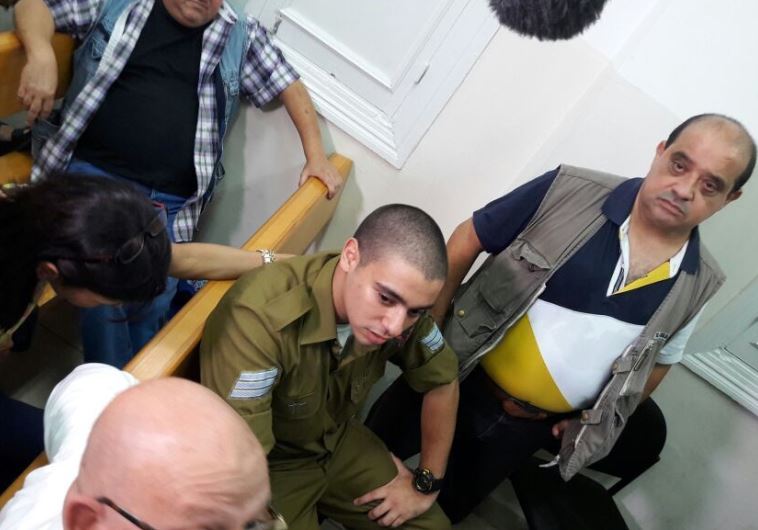Hebron shooter's defense team wraps up, asks court to acquit Elor Azaria of all charges
Azaria is on trial for manslaughter for shooting Palestinian in the head after he had already been shot by two soldiers that he had just attacked.
 Trial of IDF Sgt. Elor Azaria, July 5, 2016(photo credit: YONAH JEREMY BOB)Updated:
Trial of IDF Sgt. Elor Azaria, July 5, 2016(photo credit: YONAH JEREMY BOB)Updated: